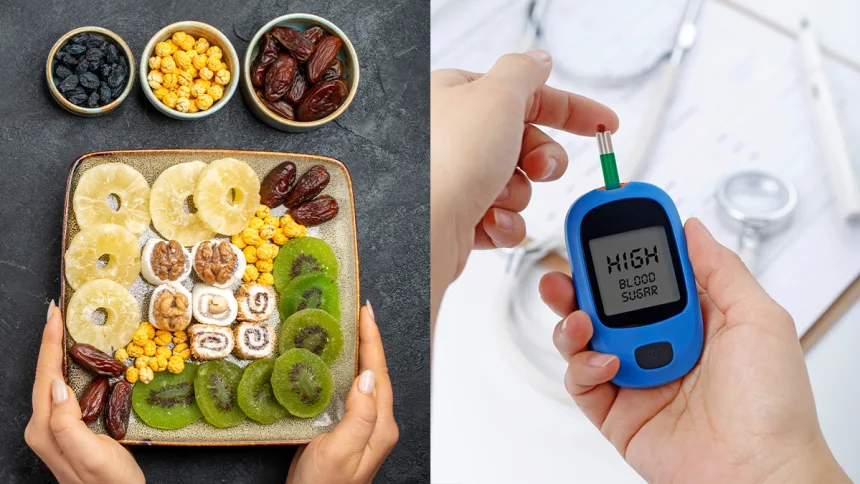Ramadan, the ninth month of the Islamic calendar, is a time of spiritual reflection and fasting from dawn to sunset. While fasting is a religious obligation for many Muslims, it presents unique challenges for individuals with diabetes. Understanding the physiological changes during fasting and implementing appropriate strategies can help ensure safety while observing this sacred practice.
Diabetes and the physiology of fasting
In healthy individuals, fasting initiates metabolic shifts that allow the body to utilize stored energy. Initially, glycogen stores in the liver provide glucose, but as fasting continues, the body mobilizes free fatty acids, which are converted into ketones through beta-oxidation in the liver. These ketones serve as an alternative energy source for the brain and muscles. However, in people with diabetes, this process can be disrupted, leading to risks such as hypoglycemia, hyperglycemia, and diabetic ketoacidosis (DKA).
Type 2 diabetes mellitus (T2DM) is characterized by insulin resistance and progressive beta-cell dysfunction. In the early stages, controlled fasting and weight loss can improve insulin sensitivity and glucose metabolism, potentially reversing the T2DM phenotype. However, as diabetes progresses, beta-cell exhaustion can lead to insulin dependence, mimicking Type 1 Diabetes Mellitus (IDF, 2023). This underscores the need for individualized fasting plans.
Intermittent Fasting and Ramadan
Intermittent fasting (IF), a dietary approach involving alternating periods of fasting and eating, has gained attention for its benefits in metabolic health. Ramadan fasting is a unique form of IF, characterized by prolonged fasting during daylight hours followed by nocturnal feeding. Studies suggest that IF can improve insulin resistance and may slow the progression of chronic diseases, including diabetes. However, these benefits depend on meal composition, hydration, and medication adjustments.
Pre-Ramadan medical evaluation
A crucial step in preparing for Ramadan is a comprehensive pre-Ramadan medical evaluation. This assessment helps categorize patients into risk groups based on IDF criteria: very high, high, moderate, or low risk. Factors such as glycemic control, presence of complications, and medication regimens are considered. Patients in high-risk categories are generally advised against fasting, but those in moderate or low-risk groups can proceed with proper guidance. Education on dietary habits, physical activity, medication adjustments, and recognition of warning signs is essential.
Medication management during fasting
Adjustments to diabetes medications are necessary to prevent hypoglycemia and hyperglycemia. Sulfonylureas, known for their risk of hypoglycemia, should be discontinued or used with caution. Patients on basal insulin therapy may need dose adjustments, with
recommendations to administer basal insulin at Iftar with a slight reduction in dose. Those on twice-daily basal insulin should reduce their Suhur dose. Rapid-acting insulin dosages should be lower to prevent postprandial hyperglycemia. Newer agents like SGLT2 inhibitors, GLP-1 receptor agonists, and pegylated insulin offer benefits such as weight loss and reduced hypoglycemia risk, making them viable options for Ramadan fasting.
Dietary considerations and lifestyle modifications
Balanced nutrition is fundamental for maintaining glycemic control during Ramadan. Suhur, the pre-dawn meal, should include slow-digesting complex carbohydrates, such as whole grains and legumes, to provide sustained energy throughout the day. Iftar should incorporate simple carbohydrates for immediate energy replenishment, but portion control is essential to avoid postprandial spikes in blood glucose. Protein and healthy fats should be included in both meals to promote satiety and stabilize blood sugar levels.
Also Read : How social media affects your emotional health and self-esteem
Hydration is another critical factor. Patients should consume adequate fluids between Iftar and Suhur to prevent dehydration, which can exacerbate hyperglycemia, particularly in those on SGLT2 inhibitors. Physical activity should be modified, with strenuous exercises postponed to non-fasting hours to minimize the risk of hypoglycemia and dehydration.
Monitoring and recognizing warning signs
Frequent blood glucose monitoring is essential during Ramadan. Contrary to common belief, finger-pricking for glucose monitoring does not break the fast and should be performed regularly to prevent adverse events. Hypoglycemia (blood glucose <70 mg/dL) can lead to dizziness, confusion, and even loss of consciousness. If symptoms occur, fasting should be discontinued immediately to prevent severe complications. Hyperglycemia (blood glucose >300 mg/dL) poses a risk of ketoacidosis and dehydration, warranting medical attention.
Cultural and regional considerations
Cultural dietary habits vary across regions, influencing diabetes management during Ramadan. For instance, in the UAE and Egypt, traditional Ramadan foods like dates and deep-fried snacks are common. While dates provide essential nutrients, their high glycemic index necessitates moderation—typically 1-2 dates at Iftar is recommended. Patient education should be culturally tailored to ensure adherence to dietary and medication guidelines.
Fasting during Ramadan is a deeply spiritual practice that requires a personalized approach for individuals with diabetes.
Mark Che Bruce, Assistant Professor, University of Birmingham (Dubai)
Fasting during Ramadan is a deeply spiritual practice that requires a personalized approach for individuals with diabetes. Proper pre-Ramadan planning, appropriate medication adjustments, balanced nutrition, and continuous glucose monitoring are key to a safe fasting experience. Healthcare professionals should provide structured diabetes education to empower patients in making informed decisions. Further research is needed to optimize clinical guidelines and improve diabetes care during Ramadan fasting. By integrating medical expertise with cultural sensitivity, individuals with diabetes can observe Ramadan safely while maintaining optimal glycemic control.




















